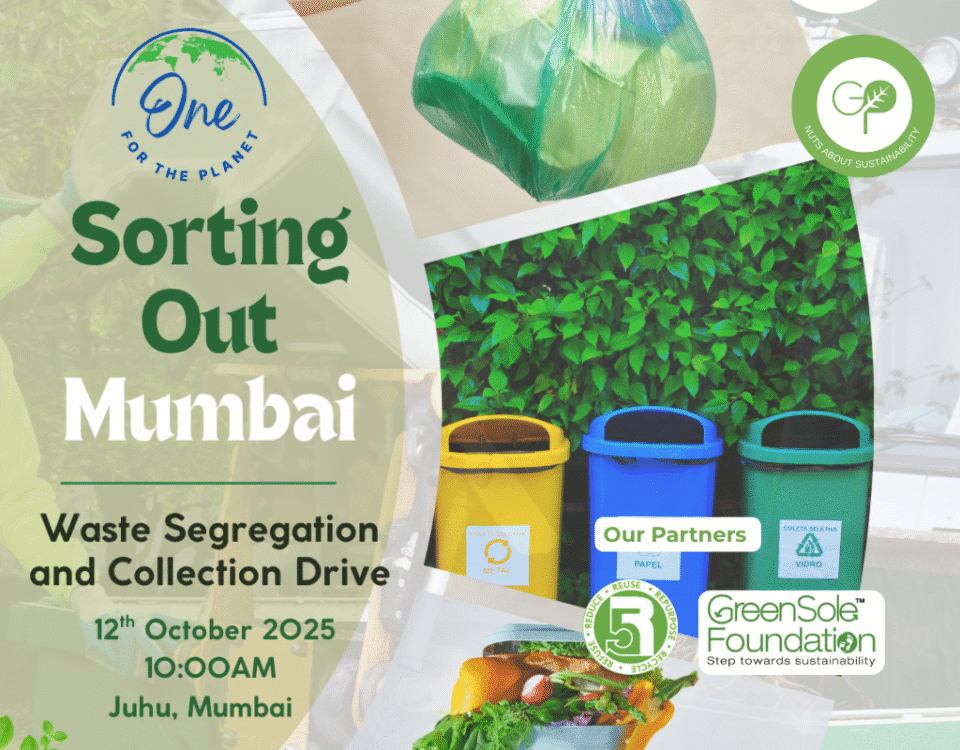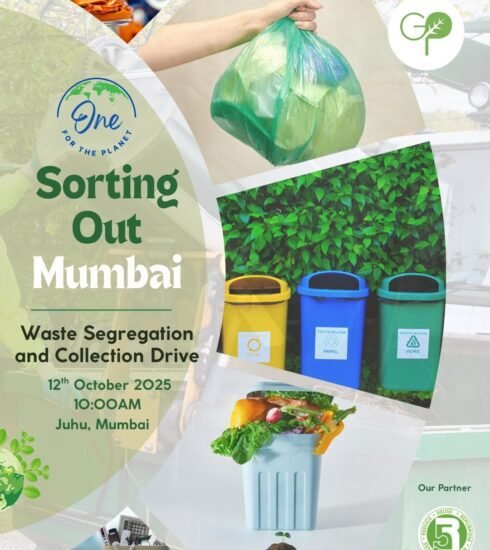Sorting Out Mumbai: Sorting Waste, Shifting Mindsets, Spectacular Energy
When was the last time you travelled across town just for garbage? One participant at Sorting Out Mumbai did exactly that. Journeying from the other end of the city (and then some) just to take part in an event all about waste segregation. That’s not just dedication; that’s the kind of commitment we wish people had toward their own dustbins.
Hosted by Green Pistachio under the One for the Planet initiative, the event brought Mumbaikars together to quite literally sort through trash, the goal being not just cleaner bins, but a cleaner mindset. With support from 5Rcycle, our recycling partner, and Greensole Foundation, who give discarded clothes and shoes a second life by transforming them into footwear and essentials for underprivileged children, the event was all about sorting waste and tackling the circular economy in the most hands-on way possible.
And it was in this wonderfully messy context that our long-distance participant dropped some hard truths. Let’s dive into her refreshingly honest Q&A:
A few nuggets from her Q&A:
Have you ever judged someone for not recycling? Be honest.
“Yes.”
— Brutal. But relatable.
Which brand makes you feel a little better about buying plastic?
“None.”
— Oof. So much for our recycled plastic justifications.
On a scale of 1 to ‘I wash my milk packets’, how eco are you?
“7. Sometimes I forget.”
— That’s eco-commitment right there.
If your trash could reveal one thing about you, what would it be?
“I segregate my trash as much as I can.”
— Meanwhile, most of our trash just screams shopping addiction.
Everyone loves the planet until it’s time to sort their waste
We’ve all met people who say they care about sustainability. The ones who share ocean-cleanup videos, wear “eco-friendly” merch, maybe even hashtag #NoPlanetB, and then casually toss a wet tissue into the dry bin like they didn’t just doom an entire bag of recyclables to the landfill.
At Sorting Out Mumbai, participants had the rare opportunity to move beyond buzzwords and actually get their hands in the game or, in this case, the garbage.

Through a series of sorting challenges, they experienced firsthand the nitty-gritty of waste management: dry vs. wet, reject vs. recyclables, and the many ways contamination can undo an entire cycle of recycling. It was fun, chaotic, eye-opening, and more than a little humbling. One misstep, and your bin was suddenly “landfill-only”.
And yet, despite the enthusiastic sign-ups, only a fraction of those who registered actually showed up. Which, in a way, echoed the whole point of the event.
People love the idea of sustainability. They like to talk about climate change, repost infographics, and tell themselves they’re “doing their bit”. But when it comes down to actual action, showing up, sorting waste, and rinsing that yoghurt cup. The numbers start to drop off quickly.
Here’s the messy truth:
There is no circular economy without circular behaviour.
That means:
- Segregating waste at source
- Understanding what materials can and can’t be recycled
- Taking responsibility for our own consumption and disposal habits
Recycling isn’t magic. It’s a system, one that starts in our kitchens, at our desks, in our everyday routines. And when we skip our part, we’re not just creating more waste. We’re creating more work for the waste workers we rely on, often invisibly, to “fix” the mess.
What Sorting Out Mumbai revealed, both in the powerful participation of a few and the silence of the many, is this: awareness is not enough. If we want real change, we have to stop being passive consumers of sustainability and start being active contributors.
Let’s Keep Sorting Waste Out
If this post made you rethink your bin habits (or at least made you feel slightly guilty about that unwashed yoghurt cup), we’re glad.
And if you think more people need to hear this (spoiler: they do), share this blog, send it to that one friend who definitely doesn’t sort their waste, and subscribe for more stories, events, and real talk from the frontlines of planet-friendly action.
Because real change starts small, and sometimes, with something as simple as showing up.





